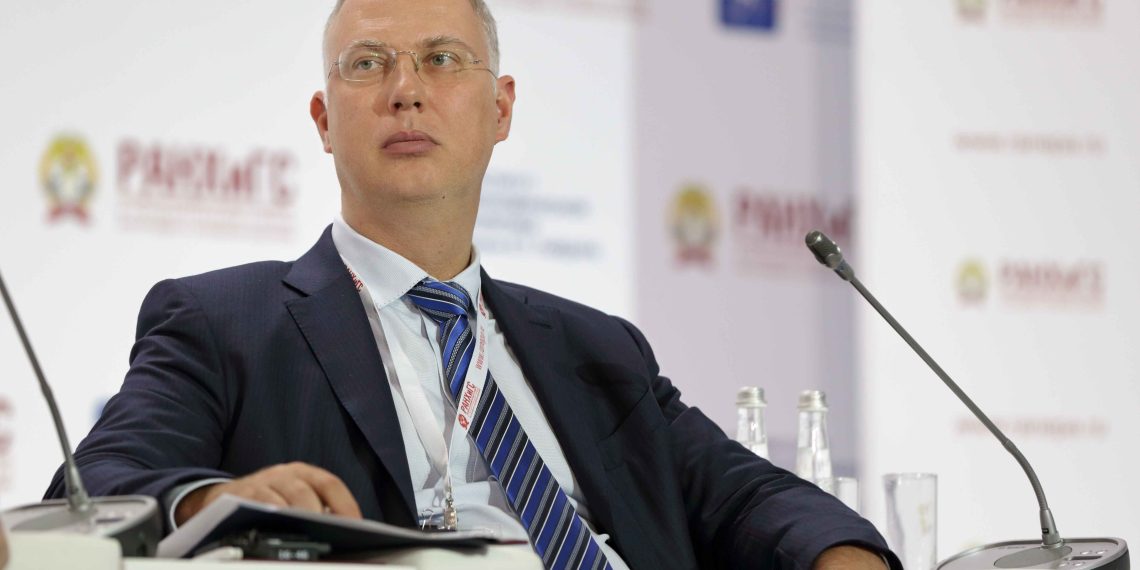In October 2024, Russia‘s strategic partnership with the Russian Direct Investment Fund (RDIF) and BitRiver, a major data center operator, marked a bold step toward expanding Bitcoin mining and artificial intelligence (AI) computing capabilities in BRICS countries. This initiative comes at a time when Russia is looking to counter Western sanctions through alternative financial systems, potentially creating a cryptocurrency-based payment infrastructure within the BRICS bloc.
Building Mining and AI Infrastructure Across BRICS
On October 18, RDIF and BitRiver revealed plans to construct data centers focused on Bitcoin mining and AI, aimed at boosting Russia’s presence in the global computing capacity market. The partnership is designed to address the shortage of available space in energy-intensive data centers globally, tapping into Russia’s expertise in running large-scale, energy-intensive operations like mining and AI computations.
“Together with RDIF, we will create the necessary infrastructure base for mining and AI, developing data centers that can host and support related projects,” said Igor Runets, CEO of BitRiver. This expansion will provide the foundation for a broader regional crypto and AI ecosystem, aiming to position Russia as a key player in both sectors.
Crypto Mining and AI as Economic Levers for BRICS
Russia’s RDIF has already implemented over 100 projects worth more than RUB 2.2 trillion. With the new collaboration, Russia is positioning itself as a technological leader, with plans to implement AI technologies to help fuel BRICS GDP growth by an estimated 1.2% annually. The initiative includes creating a joint investment platform for BRICS countries to develop high-tech projects like AI.
Kirill Dmitriev, RDIF’s CEO, emphasized that this new venture could not only scale data center capacities but also enhance regional technological capabilities for the BRICS countries. This initiative supports Russia’s broader geopolitical ambitions to extend its influence through technology.
Domestic Developments and Legal Challenges
On November 1, Russia’s new crypto mining law came into effect, legalizing Bitcoin mining under specific regulations. The law mandates that all Bitcoin miners must register with Russia’s Federal Tax Registry and submit equipment models and wallet addresses. However, miners still face challenges such as rising electricity costs and a devalued ruble, which could impact the profitability of large-scale operations.
Despite these hurdles, Russia remains a significant player in global Bitcoin mining, though its share of the global Bitcoin hash rate has decreased from over 11% to about 5% in the past few years. This decline is attributed to both global shifts in mining infrastructure and domestic energy challenges.
Expanding Crypto Mining and AI as Geopolitical Tools
Russia’s mining expansion could set a precedent for other nations to monetize underutilized energy resources for Bitcoin mining. Countries like Argentina, Ethiopia, and the UAE are already exploring similar strategies. This expansion may also act as a tool for Russia to broaden its influence, particularly in regions with less developed IT infrastructure.
By diversifying into AI and Bitcoin mining, Russia aims to strengthen its payment infrastructure within BRICS and beyond, using decentralized cryptocurrencies as a way to bypass Western sanctions and secure a more autonomous financial system.
Crypto Payments Between BRICS Nations: A Growing Prospect
One of the driving forces behind Russia’s expanded interest in Bitcoin mining is its desire to establish a decentralized payment system for international transactions, mitigating the impact of ongoing sanctions. In July 2024, the Russian State Duma introduced legislation that permits cryptocurrencies for cross-border trade, signaling a broader move towards digital currencies as a financial tool.
Additionally, Russia is exploring the establishment of national crypto exchanges in Moscow and St. Petersburg, where the ruble and cryptocurrencies could be exchanged in a regulated environment. This would complement Russia’s broader goal of creating a BRICS-wide payment system based on digital currencies and blockchain technology, offering a more politically neutral and cost-effective option for international trade.
Yury Ushakov, a presidential aide, stated that Russia is committed to creating a modern, independent payment system for BRICS nations based on digital currencies and blockchain. He emphasized that this system would benefit states, businesses, and populations by offering low-cost transactions free from political interference.
In conclusion, Russia’s push to expand Bitcoin mining and AI computing within BRICS nations, along with its plans to establish a crypto-based payment system, marks a significant shift in the global financial landscape. As Russia continues to develop these initiatives, it could potentially reshape the way international transactions are conducted, all while navigating the geopolitical pressures of Western sanctions.





















